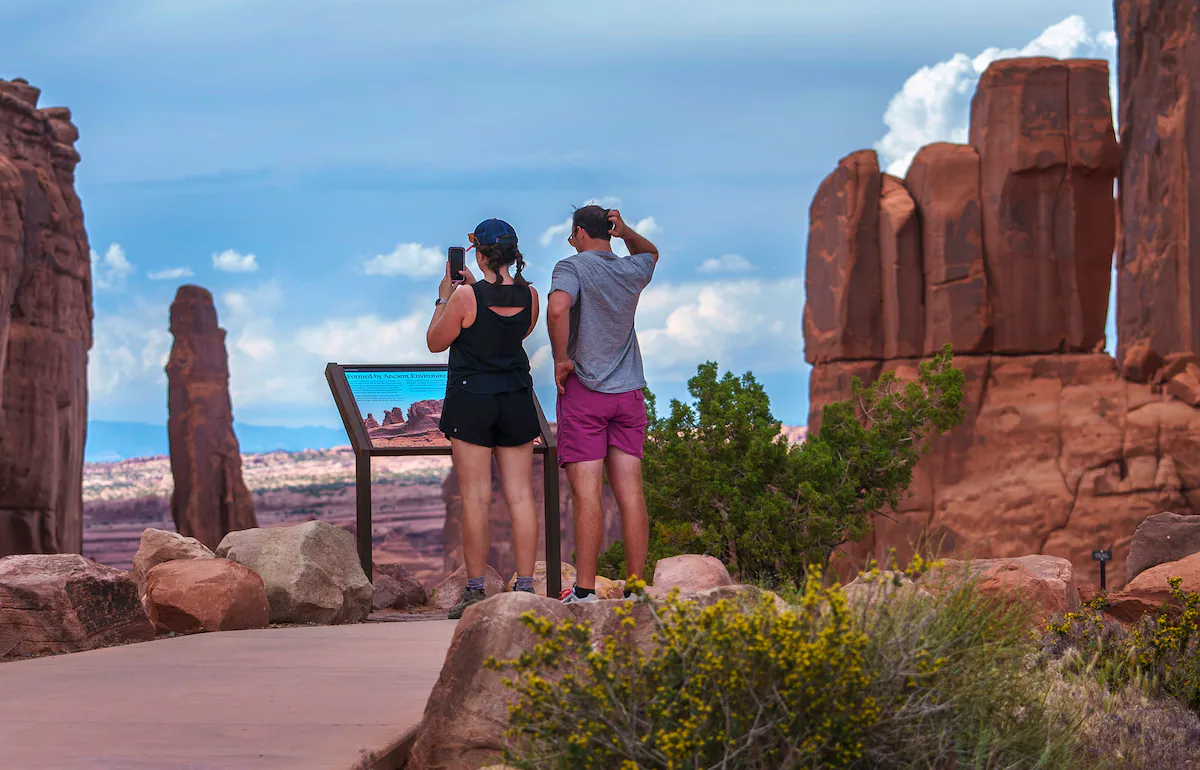
Recreation advocates are urging Congress to avoid a government shutdown that’s expected to start once the clock strikes midnight Tuesday — warning of the lasting impacts on America’s $1.2 trillion recreation economy.
While Capitol Hill prepares for the government to shutter, local lawmakers in rural communities are scrambling to find out whether the national parks will remain open come the shutdown.
The City of Moab and Grand County released statements via social media on Monday, both echoing the state is ready to step in to keep national parks, monuments and recreation areas “open and accessible to all visitors.”
Mayor Joette Langianese told The Times-Independent that from her understanding per the National Park Service, “there will be no timed entry, limited staffing, and parks will be open with full access but minimal staff.”
Timed entry is a system that requires visitors to make a reservation before getting to the park.
According to a new National Park Service report, about 2.4 million visitors spent nearly $422 million in southeastern communities last year.
In 2024, Arches National Park attracted 1.5 million visitors, contributing $288 million to the local economy. This supported 2,500 jobs, $94.5 million in labor income, garnering an overall total of $312 million in overall economic output, according to NPS.
If the government does shut down, the Outdoor Recreation Roundtable, an outdoor recreation coalition, warns the recreation workforce of 5 million will be impacted and thousands of businesses in rural communities will face lasting damage.
“The administration and lawmakers on both sides of the aisle must do everything in their power to avoid a government shutdown,” said Jessica Turner, president of Outdoor Recreation Roundtable. “Shutdowns — and even the threat of them — harm the outdoor recreation economy, close off public lands and waters, and inflict financial hardship and uncertainty on businesses, workers, and local communities who are already dealing with numerous challenges.”
Canyonlands National Park saw 818,000 visitors in 2024, who spent an estimated $126 million, supported 1,010 jobs and $38.2 million in labor income. This generated $126 million to the local gateway communities.
According to the Outdoor Recreation Roundtable, small rural communities that rely on public land visitation are at risk of losing vital income revenue.
Arches National Park generates most of its income from visitors, marking these tourists as 99.9% contributing to the spending revenue, according to the report. Canyonlands earned 99.4% of its income from non-local visitors.
In total, visitors from national parks across the country spent $29 billion in communities near these public lands. While state and local officials are scrambling to keep parks open in fear of the tourism industry impact — especially at a time when key tourism revenue is already down — many Americans have reported they will opt out of their travel plans if the government does shut down.
The risks of keeping the parks open
Last Friday, about 35 former park superintendents wrote a letter to the Trump administration, urging officials to close the parks if the government shutters.
“Past shutdowns in which gates remained open with limited staff have hurt our parks,” they wrote in the letter. “If you don’t act now, history is not just doomed to repeat itself, the damage could in fact be much worse.”
Emily Thompson, executive director of the Coalition to Protect America’s National Parks, said leaving the parks open severely understaffed is “irresponsible” and “dangerous.”
During the last government shutdown in 2019, visitors left human waste outside of bathrooms at Arches National Park and five trails were damaged in a permit-only area. Zion National Park workers were also left to fix trails, roads and campgrounds.
As the nation braces for a shutdown, the U.S. Travel Association also sent a letter to the Trump administration, warning the detrimental effects national parks could face.
“Travelers and communities also bear the brunt of closed or neglected National Parks and federally owned museums and attractions, diminished visitor experiences, and the erosion of vital infrastructure that sustains local economies across the country,” wrote Geoff Freeman, president and CEO of the association.
By Monday night, it was reported that President Donald Trump is less inclined to reach a budget deal with Democrats, leaving states to bear the brunt of a shutdown.



